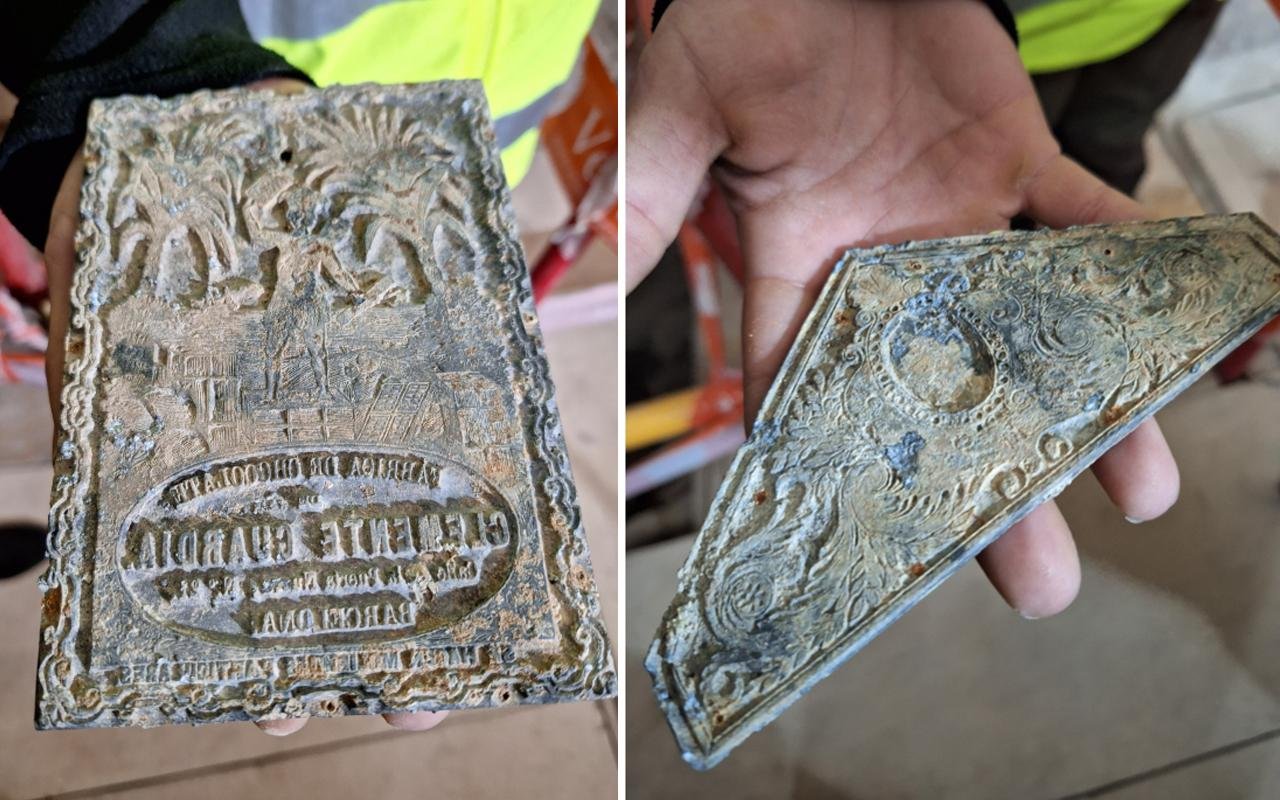Archaeologists undertaking renovations in Barcelona’s Ciutat Vella district have unearthed traces of a 19th-century chocolate factory nestled within the Plaza de la Llana.
 Two of the plates that were used to label the chocolate tiles. Credit: ICUB
Two of the plates that were used to label the chocolate tiles. Credit: ICUB
This revelation came to light during the refurbishment of a four-story building, which has unveiled remnants of a 14th-century medieval mansion and a 17th-century enclosure alongside the chocolatier’s heritage.
The historical narrative woven by these findings tells a tale of evolution, tracing back to the property’s origins as a Gothic palace standing beyond the city walls. Over time, it metamorphosed into the Hostal de Sant Pere before finally transitioning into the renowned Clemente Guardia chocolate factory following renovations in 1825. The factory, lauded in the Almanac of the Universal Exhibition of Barcelona in 1888, gained acclaim for its exquisite chocolate, pastilles, vanilla, and stone chocolates, solidifying its status as one of the city’s premier chocolatiers.
Marta Lucas, the excavation’s director, elucidated on the significance of the site, stating, “It began as a Gothic palace outside the walls. Later, it was integrated inside the walls as they expanded, and became the Hostal de Sant Pere, and finally, it was transformed into a chocolate factory.”
 Remains of the 19th century chocolate factory. Credit: ICUB
Remains of the 19th century chocolate factory. Credit: ICUB
The lead plates uncovered during the excavation offer a tangible link to its past, showcasing the meticulous craftsmanship that was involved in labeling the chocolates.
Further exploration of the site has unveiled a myriad of artifacts, including storage vessels, large pliers, and architectural elements, all of which serve as poignant reminders of Barcelona’s industrial past.
The excavation at Plaça de la Lluna stands as a testament to the city’s commitment to preserving its historical integrity while ushering in progress, as part of a collaborative effort between the Barcelona City Council and dedicated archaeologists.
The discovery of this 19th-century chocolate factory offers a glimpse into Barcelona’s industrial heyday and the artisans who contributed to its cultural fabric.





